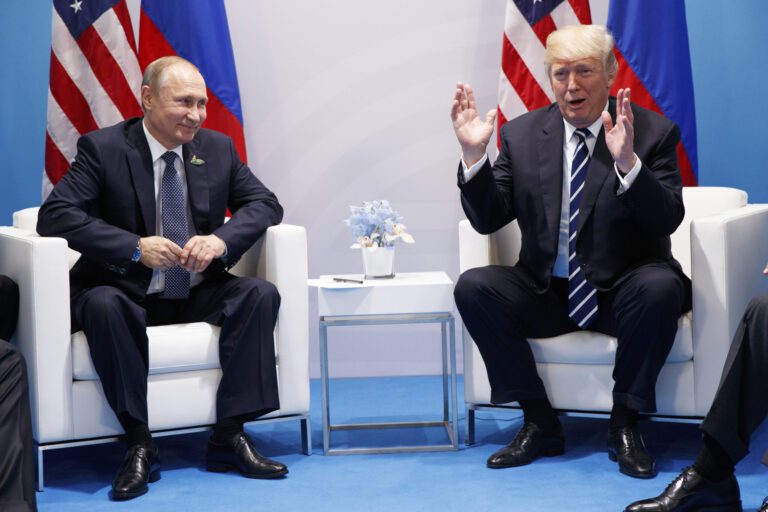Shift in Republican Views on U.S. Support for Ukraine: Insights Ahead of Trump-Putin Meeting
As President Trump prepares for his pivotal meeting with Russian President Vladimir Putin, emerging trends in Republican voter sentiment towards the war in Ukraine indicate a significant shift. Recent polling data reveals a noteworthy change in how Republican voters perceive America’s involvement in the conflict.
Poll Findings Highlight a Dramatic Turnaround
A poll conducted by the Pew Research Center has demonstrated a striking reversal among Republican voters regarding support for Ukraine.
- In February, 47% of Republicans and those leaning Republican believed the U.S. was providing excessive support to Ukraine, while only 30% disagreed.
- By August, the perspectives had notably shifted: only 30% now think America is sending too much support, while 46% disagree.
The results reflect a substantial change in mindset, particularly as the global landscape continues to evolve.
Increase in Military Support
Further insights from a survey by the Chicago Council on Global Affairs reveal that:
- The proportion of Republicans advocating for military supplies to Ukraine increased dramatically from 30% to 51% during the same period.
- Additionally, a robust 84% of Republicans harbor an unfavorable opinion of Putin.
This dramatic switch highlights a growing consensus among Republican voters for a more supportive stance toward Ukraine, reflecting broader concerns about the war.
Analysis of Changing Sentiments
CNN data reporter Harry Enten aptly described the shifts in public opinion as a "quite the switcheroo" for Republicans, particularly relevant as Trump prepares for his summit with Putin.
Contextual Background
This changing dynamic occurs against the backdrop of tension between Trump and Zelensky, which peaked during a February White House meeting that devolved into a confrontation. Trump’s remarks characterized the Ukrainian leader as "disrespectful" to the United States, raising alarms over the trajectory of U.S. support for Ukraine.
However, in May, after years of generally supportive rhetoric towards Putin, Trump expressed frustration with the Russian president’s handling of the war.
- He described Putin as having "gone absolutely crazy" and accused him of "needlessly killing a lot of people."
- On his way to a recent meeting in Alaska, Trump emphasized that Russia would face "economically severe" consequences if it continued its aggression in Ukraine.
Anticipating the Meeting: Calls for Cease-Fire
Looking ahead to the anticipated exchange between Trump and Putin, the former president has articulated a desire for immediate cessation of hostilities. He stated he would be “not going to be happy” if a cease-fire agreement is not reached during their discussions.
Key Takeaways
- Transformed Attitudes: The Republican base is moving toward stronger support for Ukraine amid ongoing violence.
- Past Interactions Matter: Trump’s previous contentious exchanges with Zelensky have had lasting implications for U.S.-Ukraine relations.
- Future Implications: How this sentiment translates into policy or negotiations at the summit will be pivotal for both the U.S. and Ukraine moving forward.
As the world watches the upcoming meeting, it will be crucial to see how these shifts in Republican voters’ perspectives shape the future of U.S. foreign policy in Eastern Europe.
For further insights into U.S. foreign relations and public opinion trends, consider exploring additional polling data from the Pew Research Center and Chicago Council on Global Affairs.


